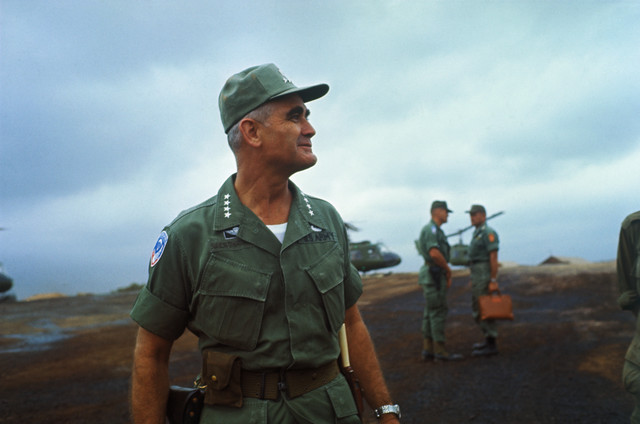He was in command of the Military Assistance Command, Vietnam (MACV) for four years, between 1964 and 1968. At the time he was criticized for his approach, for insisting on adopting massive conventional manoeuvres and for ignoring his tactical advisers.
In his new book, Westmoreland’s War, US army colonel and West Point graduate Gregory Daddis insists it is perhaps the time to end the blaming of one general who had a failing strategy and analize the whole American experience, not only the war’s outcome. Maybe people should stop seeing Westmoreland as a bad general, “but rather as a good general fighting a bad war.”
Daddis believes the United States lost the war under Westmoreland because of wrong strategies, which were “wildly simplistic.” No historian, however, could undertake the mission of rehabilitating General Westmoreland’s reputation. Daddis’s book is only about 200 pages with an extra 50 pages of endnotes, but it is such a good book on Vietnam War and all its insights, critics say there hasn’t been one out as good as this for decades. It is a thought-provoking book, worth to start debates on, The National reports.
The author believes the first debate inevitably comes down to strategy and how the war was lost because of poorly thought strategies. He insists that a strategy is both a concept and a process, an idea for the military to use in order to achieve their political objectives, but important is also how this idea is really employed during wartime.
General Westmoreland has been criticized numerous times, for not caring enough or at all about the political objectives of the war, insisting that his only interest was invested in bloody search-and-destroy missions, which was what he actually understood about the war.
Although Daddis does not agree with this at all, he admits that the general preferred using this kind of approach with the enemy, which he believes might have been misguided, “especially in light of the evidence which showed the enemy had increased its combat numbers through infiltration and recruitment,” he said.
In his book, Daddis mentions the fact that numerous North Vietnamese civilians were killed, burnt or shot, but he underlines the same thing that General Westmoreland emphasized in his 1976 memoir, A Soldier Reports, saying that every act was made to avoid the killing of so many innocent people. It seems that Westmoreland and Daddis might be the only ones to actually “take A Soldier Reports completely at face value.”
